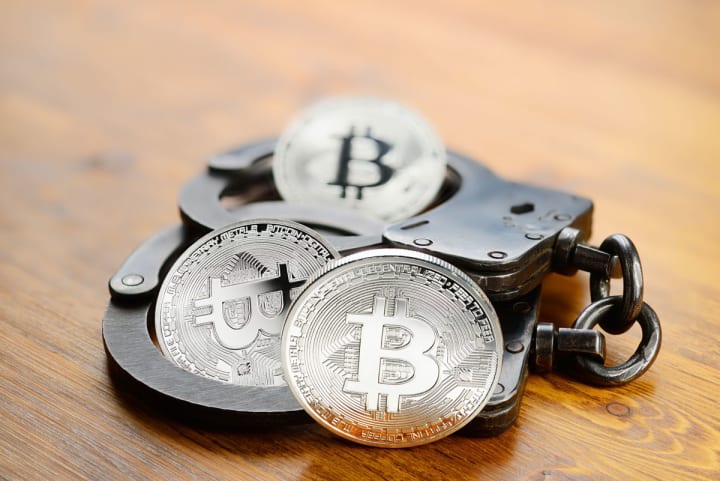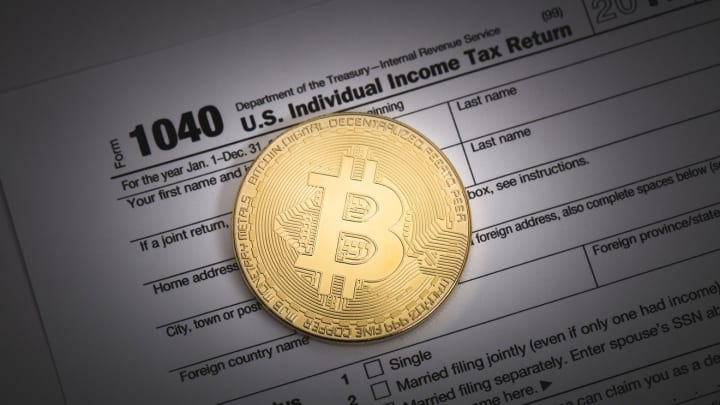Myths About Cryptocurrency and Blockchain
Think you know your Bitcoin? HODL onto your seat and read these commonly-believed myths about cryptocurrency and blockchain.

It's hard to tell what makes Bitcoin and other cryptocurrencies so alluring. It could be the high return on investment that people have experienced with them. It could be the fact that there's always a community to discuss which cryptocurrency will be the next to boom. Maybe it's just the fact that it's such a "sci-fi" concept.
Whatever the reasons may be, cryptocurrency has made a name for itself. Like with anything else, there are myths about cryptocurrency and blockchain technology that have gotten people into trouble—or really, are just plain wrong. Here are some even diehard investors believe.
Blockchain currencies are untraceable.

This is one of the most pervasive myths about cryptocurrency and blockchain-related transactions out there. Back when it was first established that Bitcoin is the new criminal currency, any transactions that happened on Silk Road used it.
People paid with Bitcoin because they were (rightfully) worried about cash transactions being monitored by the FBI. They often assumed, or were even told, that Bitcoin is untraceable.
This isn't true. Though it takes a long time, you can trace blockchain transactions. These kinds of tracing activities have actually contributed to the arrest of major drug circles—including the shutdown of Silk Road.
Cryptocurrencies have no real world value.
Another one of the most common myths about cryptocurrency and blockchain deals with its value. The myth is that there's no real world value—and if you take a look at the crypto exchange rates, you'll have ample proof that this isn't true.
With blockchain, there's plenty of proof that it's worth something. Blockchain digital ledger technology could be used to make a smarter energy grid, improve logistics recordkeeping, and more.
Though this may have been true in the past, a wide variety of different services have made it possible to get into blockchain and crypto without a degree in computer science.
At one point, this was absolutely true. Most people would not have been able to wrap their heads around blockchain or cryptocurrency in the past. However, the days where blockchain was meant for an elite cabal of people are long gone.
In fact, you can even take online courses about cryptocurrency that will let you master the basics fairly easily. Since this is outdated, this "fact" now ranks among myths about cryptocurrency and blockchain.
Blockchain will change everything about transactions forever.
Well, this is only partly a myth. Blockchain can and will make a lot of transactions safer and more secure. It also can change how you pay for it, thanks to the invention of cryptocurrencies. In the distant future, it may also become the de facto method of payment.
However, it won't change *everything* about transactions. People will still have wallets, use credit cards, and do their stuff the way they do now. It will change a lot, but not everything.
Cryptocurrencies are for criminals, only.

This is one of the most commonly held myths about cryptocurrency and blockchain out there—and there's a small grain of truth in it. Bitcoin and other cryptocurrencies had their biggest starts on Dark Web sites like Silk Road, which typically featured illegal goods for sale.
However, normal people who abide by all the laws can use cryptocurrency too. It's not just "the new criminal currency" that people assume it to be all the time. Microsoft, major banks, and top investors all use cryptocurrencies now.
So, it's time to get rid of the stigma, don't you think?
Bitcoin and other cryptos are too volatile to really be worth working with.
If you invested in Bitcoin at its peak last December, we can totally understand why you might feel that way. Bitcoin and other cryptocurrencies are exceptionally volatile, and that's why they are regularly called some of the most dangerous investments you can make.
With high risk comes high rewards, though. Those who capitalized on volatility did well for themselves. That's why there are so many Bitcoin millionaires and billionaires out there.
Stores will never accept cryptocurrencies, so stop freaking out!

Not true. Square, one of the largest e-commerce companies in the world, recently started working with cryptocurrencies. Their stores are now capable of accepting Bitcoin. Etsy shops, too, have been known to accept Bitcoin. Overstock.com, Expedia, and Shopify all accept them too.
Yeah, you can pay with Bitcoin if you so choose. It's become that big.
Cryptocurrency is fundamentally different that fiat money.
In a lot of ways, this would have been true about 60 years ago. This is because our financial system was backed by gold. However, there was a paradigm shift and gold no longer backed the dollar. After that, other countries followed suit.
Now, the only real thing that guarantees value is the federal guarantee. In other words, value of fiat money is just as arbitrary as the value of digital currencies. Moreover, physical coins with Bitcoin codes also exist. So, there's now also a physical type of coin. Is it really that different, now?
Due to the paradigm shift that's happened, this "fact" is now closer to being called one of the biggest myths about cryptocurrency and blockchain coins in existence.
You don't have to pay taxes on gains you made by investing in Bitcoin.

Uh, yes you do. If you invest in Bitcoin and make a net gain, the IRS wants a chunk of your profits. Not paying taxes on that stuff could potentially cause you to get fined—or even jailed. Don't mess with the IRS.
If you avoid believing in any myths about cryptocurrency and blockchain this year, make sure you avoid believing that Bitcoin profits are tax-free. Digital assets are still assets, so if you invest heavily, make sure you know your tax laws.
Cryptocurrencies can be shut down by the government.
Don't ask us how some myths about cryptocurrency and blockchain get started. We honestly don't know how some people think this works. The reason why decentralized currency is stronger than government organizations is because there's no center to it.
Without centralization, cryptocurrencies can't really be shut down. There's no main center, which means that no one location can be triggered into causing a shutdown. As a result, no single entity can really control cryptos.
About the Creator
Ossiana Tepfenhart
Ossiana Tepfenhart is a writer based out of New Jersey. This is her work account. She loves gifts and tips, so if you like something, tip her!






Comments
There are no comments for this story
Be the first to respond and start the conversation.